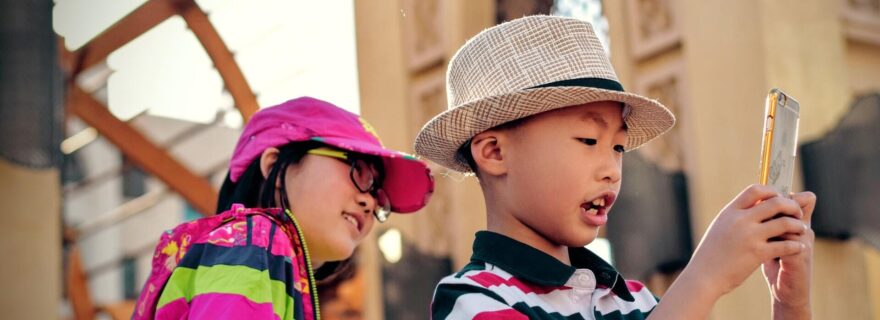Prevent children becoming victims of a data-driven world
The impact of ‘dataveillance’ on children who are monitored from birth via smartphones and FitBits, is great. Children’s rights must be more central when it comes to designing technology.
The Dutch House of Representatives will soon decide on a revision of the curriculum at Dutch schools. It will then become clear whether digital literacy is to be taught to pupils on a structural basis. That would be a good thing. But we still need to talk about technology and data. Information on children has been recorded for years, for example in school reports and the Cito score*. Nothing new under the sun there. But it’s now becoming increasingly common to collect data on children and young people by digital means. This ‘datafication’ entails the collection and analysis of big data. Algorithms can then recognise patterns in mass data and filter out specific knowledge.
There is so much information currently being monitored that childhood is being overshadowed by ‘dataveillance’, a conflation of data and surveillance. Dataveillance is the constant monitoring and recording of the activities of children and young people. We are well aware of the security and privacy risks. But one question is seldom asked: what does it mean for children to live in a world in which data increasingly defines who they are? Research shows that the impact is great.
1.
Of course, young people enjoy the benefits of social media. But the downside is that friendship is no longer a relationship between two individuals, but a relationship between individuals and a series of algorithms in a commercial and technological infrastructure.
2.
Dataveillance makes working on your health a ‘game’, with a FitBit on your wrist or an app on your smartphone. The culture of self-tracking even makes young people open to the input of microchips. And this is all so they become healthier or smarter? But how healthy is that?
3.
Dataveillance has become an expression of loving attention. It’s no longer strange for parents to see where their children are by using a tracker on their smartphone. What does that mean for the privacy and autonomy of children?
4.
Finally, what is considered good education is changing. On the basis of real-time data, algorithms plot personal ‘learning routes’ for arithmetic and language on online ‘learning platforms’. Is a pupil the graph on the digital ‘dashboard’, or the child sitting at the computer?
Socio-cultural changes under the influence of technology have always been occurring. However, in the lives of the ‘always on’ generation, algorithms get in the way of values such as freedom, humanity and justice. Without young people being sufficiently aware of the impact on their rights, without them having a say in the matter. After all, they’re not the ones building the digital foundation of their world; adults are doing that.
So, it is necessary to make ethics and children’s rights more central in the design and use of data-driven technology and give young people a say in ethical considerations. If young people are to get a solid foundation, they need good education in arithmetic and language above all. And digital literacy. But not without a more digitally aware society. A society in which pupils and students get a fair chance to build their own future, instead of algorithms deciding it for them.
* The Cito exam is an independent assessment of final year primary school pupils in the Netherlands.




0 Comments
Add a comment